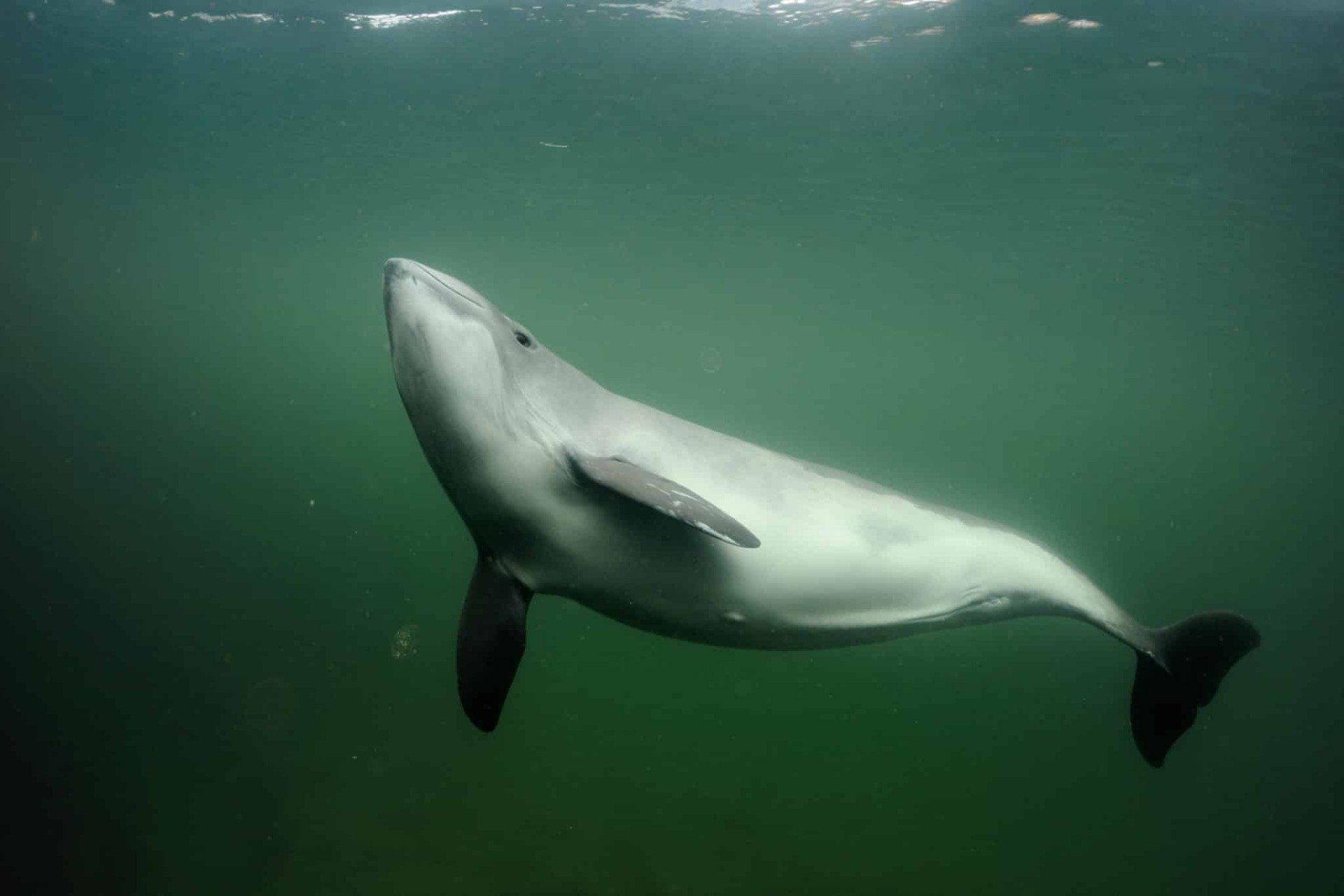Out of Sight, Out of Mind: How Conservation Is Failing European Porpoises
New scientific paper calls for urgent action to protect Europe’s porpoises.

Sweden, February 2021 – In a paper [1] just published in the journal Frontiers in Marine Science, three marine mammal experts have stressed the vulnerability of the harbour porpoise in European seas, and call for urgent action, especially in relation to the threat from fisheries.
The experts argue that European cetaceans (whales, dolphins and porpoises) and their habitats are covered by a number of international and regional conventions and agreements (as detailed in the paper) and, under European Union law, are “highly protected.” However, in practice, these measures have failed to generate effective conservation and the Baltic harbour porpoise population, for example, now only numbers in the low hundreds and is classified as Critically Endangered [2].
The paper’s authors also consider the situation of other porpoise species, reporting that many are threatened elsewhere in the world and they stress that the main threat to them all is incidental capture in fishing nets.
Ida Carlén, one of the authors and a researcher at Stockholm University and Nature Conservation Officer at Coalition Clean Baltic comments: ‘We have known for decades that the Baltic Proper harbour porpoise population is in grave danger, yet until now nothing has been done to protect his tiny population. Now urgent action is needed to ensure its survival.’
These animals are very vulnerable to the adverse effects of growing human impacts in the sea and the situation in the Baltic is especially critical. ´Whilst we have seen many plans on paper to act in the animals’ best interest, this has not translated to real action. Our new paper highlights the need to act in a timely fashion or populations will be reduced to a point of no return´, continues Ida Carlén.
Mark Simmonds OBE, another author and Senior Marine Scientist with the Humane Society International adds: ‘One of the problems that this species faces is relatively poor public recognition. They were once common in coastal waters but now few people would recognise one if they met it. This lack of public appreciation means that people do not know what they are losing and, therefore, do not call on their elected representatives to act.’
However, the researchers also reveal some signs of hope with plans and recommendations coming from the European Union and Laetitia Nunny, an independent wildlife researcher based in Spain, comments: ‘The European Commission has recently shown it is taking this problem seriously and we remain hopeful that if action is taken to adapt fishing practices and to tackle other threats such as chemical and noise pollution then harbour porpoises will be able to swim safely in European waters.’
With the publication of this article, the authors hope to bring the harbour porpoise to the forefront of wildlife conservation in Europe so that populations can recover and thrive.
Contacts
For more information or an interview please contact:
- Ida Carlén, researcher at Stockholm University and Nature Conservation Officer at Coalition Clean Baltic: ida.carlen@ccb.se, +46 70 3133067
Or
- Mark Simmonds, Senior Marine Scientist at Humane Society International: msimmonds@hsi.org, +44 7809643000
Background
Harbour porpoises are one of the smallest of marine mammals. They live in small fluid groups of between 1 and 10 individuals and tend to keep away from boats and people. Several distinct populations are recognised within Europe and that in the Baltic Proper is classified by the IUCN as Critically Endangered.
Notes
CCB – Coalition Clean Baltic is a politically independent, non-profit association, which unites 23 member organizations and 1 observer, with over 850,000 members in all countries around the Baltic Sea. The main goal of CCB is to promote the protection and improvement of the Baltic Sea environment and its natural resources. More info at www.ccb.se.
Human Society International is a non-profit organisation and a leading force for animal protection in the European Union, UK and beyond, with active campaigns to protect wildlife across the region. More info at https://www.hsi-europe.org/.
[1] Paper “Out of sight, out of mind: how conservation is failing European porpoises” – Ida Carlén, Laetitia Nunny and Mark P. Simmonds (2021): available free online at
https://www.frontiersin.org/articles/10.3389/fmars.2021.617478/abstract
[2] IUCN Red List, Phocoena phocoena Baltic Sea subpopulation: https://www.iucnredlist.org/species/17031/98831650


